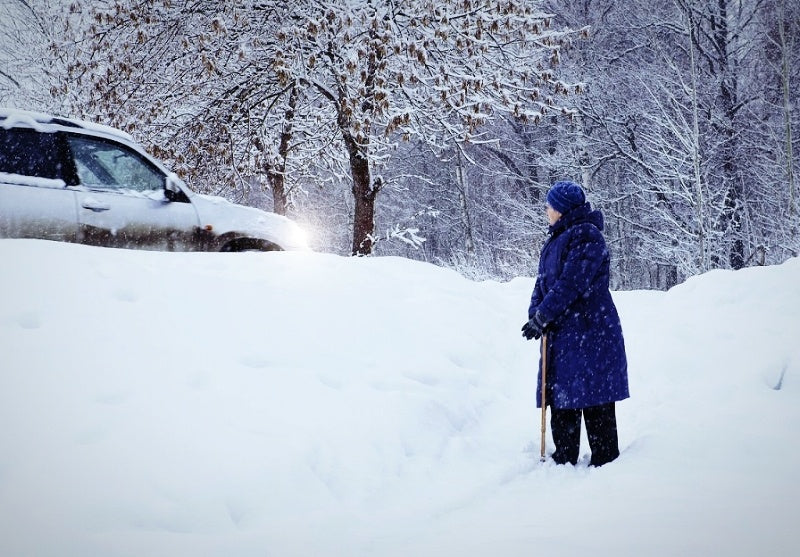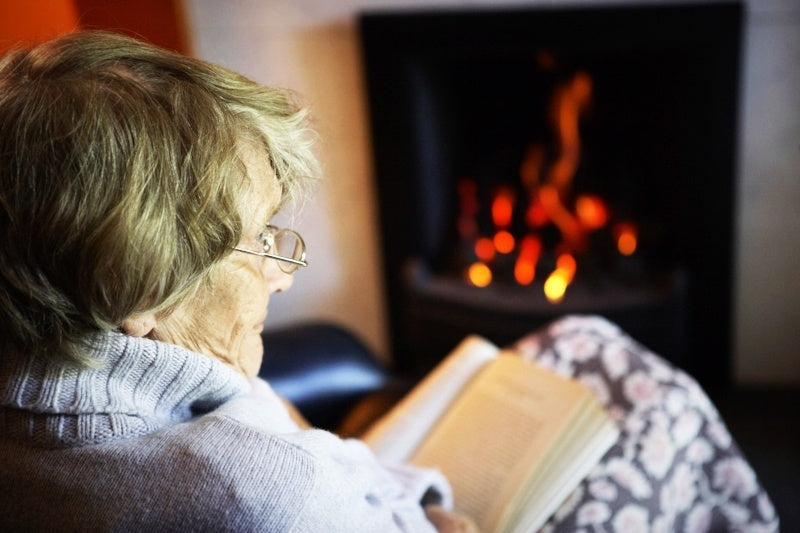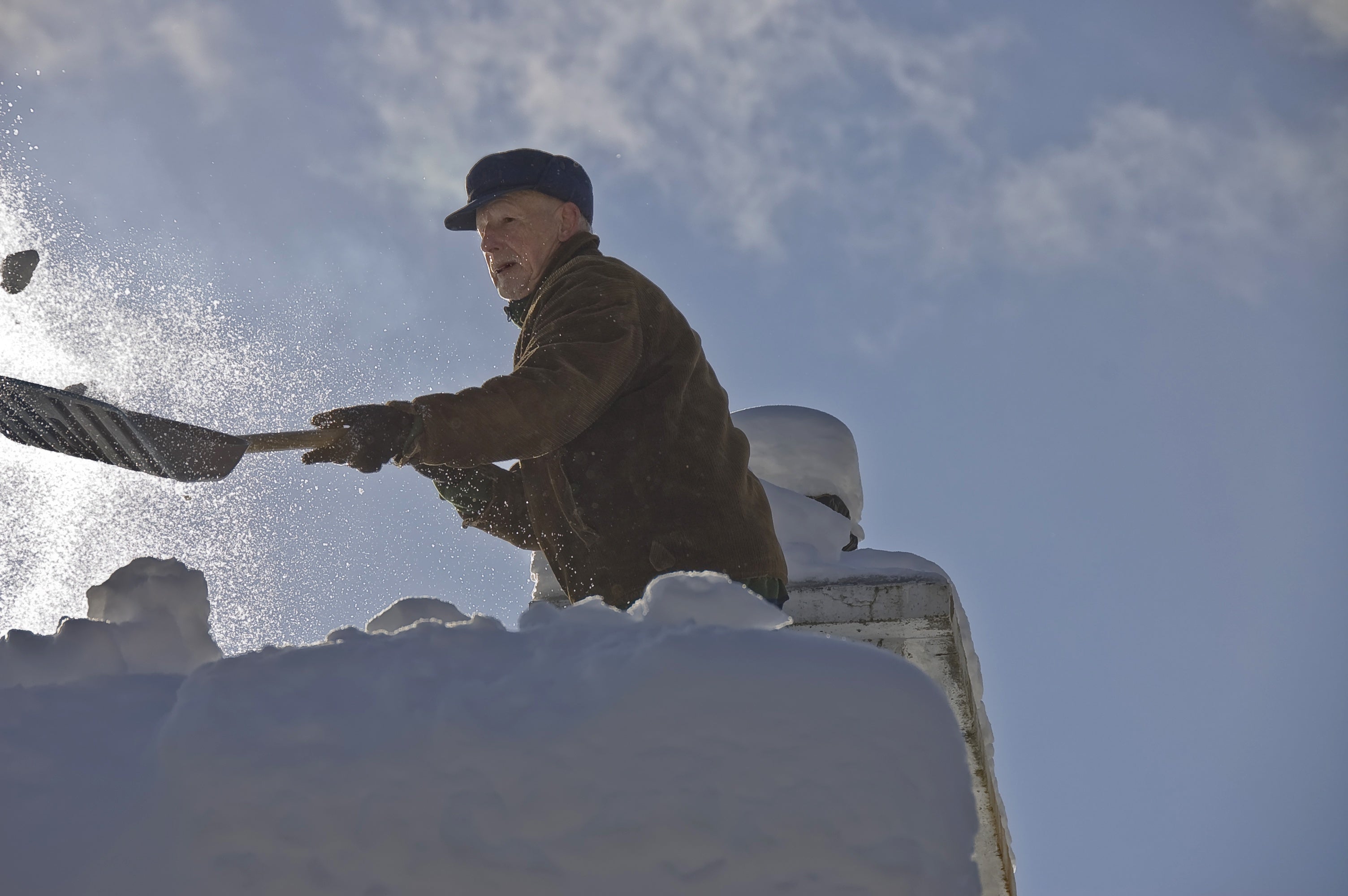
When outdoor temperatures plummet and snow and ice cover the ground, conditions are dangerous for everyone, but it is seniors who suffer the most each winter from hypothermia, frostbite, slip-and-fall incidents, and other accidents.
By better understanding wintertime dangers, seniors can better prepare and minimize the risks. Here are 8 winter safety tips for seniors that will help them safely navigate wintry conditions:
-
Be alert for hypothermia: Body temperatures can sink to dangerously low levels in short space of time in sub-freezing weather. Plus, it is easy to lose track of how long you have been outside. If your skin feels very cold and looks a bit pale, and if you feel extremely exhausted/disoriented and notice your breathing and/or heart rate is slowing, get indoors as soon as possible.
-
Dress for conditions: Always dress in layers for cold weather, with at least two thin, warm layers under a thick sweater/coat. Be sure to wear warm socks, gloves/mittens, a scarf, and a winter hat as well. Even if going outside for only a brief trip, you should put on all winter clothing — a slip and fall, accidentally locking yourself outside, or distraction with unplanned tasks could keep you outside longer than expected.
-
Keep your clothing dry: Avoid snow contact with anything but the bottom of your shoes/boots as much as possible. Wet clothing will chill your body faster, and snow may melt and dampen coats, gloves, and pants. Especially avoid touching or getting sprayed/splashed by puddles of water or slush.
-
Guard against frostbite: Those with heart conditions are especially vulnerable to frostbite since it mostly affects those parts of the body furthest from the heart (in terms of blood circulation), such as fingers, toes, nose, and ears. If skin looks discolored or feels numb, immediately go inside and run it under mildly warm water. Frostbite not only can damage your skin but can kill tissues all the way to the bone in extreme cases, so guard against it by covering all parts of your body with warm clothing. Ear muffs and ski masks should even be worn in extreme conditions.
-
Be cautious with snow shoveling: Those with heart conditions should not risk shoveling snow since it puts a heavy strain on the heart. Those with osteoporosis or trouble keeping their balance should also steer clear of it. But even if you are able to shovel, be careful not to over-exert, take numerous short breaks, go inside to warm up as needed, and before heading outside, eat a hot breakfast and do some basic stretching to loosen up.
-
Maintain an ice and snow-free path: Anywhere you or others will be stepping outside around the house, keep clear of ice/snow as consistently as possible. Snow removal, deicing, and anti-icing (brine applied before a storm) can all help. A heated driveway and/or snow-melting mats can keep the path clear with the least effort and without damaging your pavements.
-
Maximize traction every way you can: The better the traction, the less chance of slips and falls. Wear slip-resistant, high-traction shoes or boots, put down sand on pavements if necessary to improve traction, and consider (if applicable) getting a can attachment that boosts the traction on the cane-tip.
-
Be prepared with smoke/carbon monoxide detectors: With wood/gas burning fireplaces, base-board heating systems, and space heaters in high use during winter, fire hazards significantly increase. Carbon monoxide can also potentially be released should heaters or stoves malfunction. Install smoke and carbon monoxide alarms in each inhabited room of the house and be sure to test the batteries just before winter begins. Also, have chimneys/flues inspected every year and cleaned as needed. Finally, keep space heaters three or more feet away from anything flammable at all times.
As winter's snow, ice, and sub-freezing temperatures draw closer, seniors especially should consciously prepare themselves and their home (both indoors and out) for the season. Following a few basic winter safety tips can often prevent injuries and even fatalities, so it is wise to take wintertime dangers seriously.


